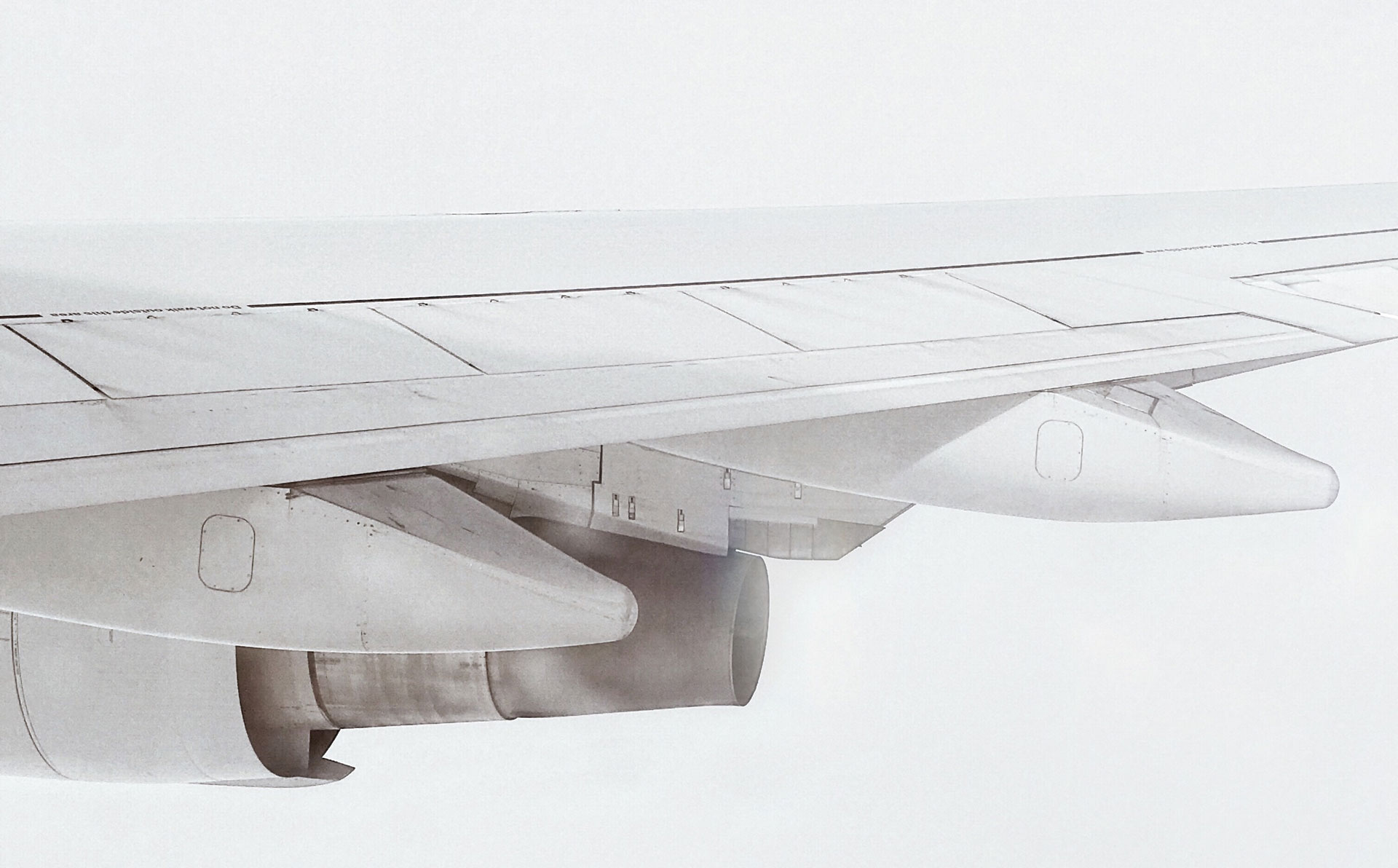RESOURCE LIBRARY
4 Air Travel Tips to Prevent Injury, Strain and Neck Pain

Standing in long line-ups, carrying awkward bags, and sitting in cramped positions are part of air travel.
Physiotherapists dread when a client comes in, saying that they are traveling overseas the next day and their back is painful. Even if the client walks out of the clinic pain-free, the chances of the pain recurring during the flight are high, unless certain tips are followed.

Get comfortable with these handy air travel tips.
Image via Unsplash.
The following tips will help ensure a comfortable flight:
1. Luggage
Luggage should be as light as possible, and easy to roll. When pulling wheeled
luggage, keep your hand close to the buttock at your side. The further your hand is behind your back, the more likely you will feel a strain in the shoulder or the back.
As you lift your luggage onto the roller, bend with your knees, not your back. Use carts or porters whenever possible.
Lifting your carry-on bag onto the overhead rack requires care. Donʼt hesitate to ask for help if you have back, neck, or shoulder pain, or if you are not tall. Get as close to the overhead bin as possible, so that the elbows remain partly bent as you lift. Push the luggage into the bin as soon as it rests on the edge, so that the edge takes part of the weight.
Know your risks and prevent injury with our strategies for your best flight ever.
Image via Unsplash

2. Pain Management
If you are in pain, tell the agents when you check in, to see if bulkhead seating, offering greater leg room, or if you are a frequent flyer, upgrading to business class, is possible. Nothing will make you feel better than the chance to fully recline.
If an injured area hurts, ask for ice. Bring a plastic bag and use the ice that is provided for drinks if no gel pack is offered. Keep the ice on the sore area for fifteen to twenty minutes, and repeat up to once an hour.
3. Back Support
When sitting on the plane, change positions as much as possible. Recline the seat for a while, then move it upright . Place you feet up on the foot rests if available, then put them down on the floor.
A lumbar support, such as a pillow or rolled up towel, usually feels good.
For the neck, an inflatable or soft neck pillow is often helpful so that the neck does not kink if you fall asleep.
When sitting on the plane, change positions as much as possible.
4. Minimize DVT risks
Most passengers know that deep vein thrombosis (blood clots) are a risk of air travel. The risk can be reduced by frequent moving. Get up and walk in the aisle frequently. Ask for an aisle seat. If you are at a window seat, donʼt be shy about disturbing your neighbors by getting up frequently. When sitting, pump the ankles up and down a lot. If your shoes feel tight, take them off.
The key to comfortable airline travel is light portable luggage, good body mechanics when lifting, and frequent position changes. Bon Voyage!
Talk to one of our expert physiotherapists for more information. Call us at 604 568 4628 or book an appointment online today.
filed in
Latest Articles

The Anteriorly Tilted Pelvis
RESOURCE LIBRARY This post was written by Go! Physio Kinesiologist, Steve Dempster. The pelvis has several important functions. Its primary role is to support the weight of the upper body when sitting and to transfer this weight to the lower limbs when...

Cancer Surgery and Rehab
RESOURCE LIBRARY Go! Physiotherapy Physiotherapists at Go! Physiotherapy are equipped with clinical rehabilitation expertise, oncology specialization, manual lymphatic drainage certification (LANA), and decades of rehabilitation experience in exercise...

We are still open! How? Our response to the COVID-19 pandemic
LATEST NEWS Go! Physiotherapy Staff Dear Friends of Go! Physiotherapy, These are unprecedented times. It feels that by the time we have finished crafting this sentence, things will have changed. And we here at Go! Physio are rolling...

TeleRehab FAQs
RESOURCE LIBRARY Go! Physiotherapy Staff FREQUENTLY ASKED QUESTIONSDue to the COVID-19 pandemic affecting our community, we are committed to keeping our patients and staff safe by providing online video and phone calls (telerehab) until physical distancing measures...
Unlock Your Body’s Strength and Mobility Today
Book Online
Current patient? New, but know exactly what you’re looking for?
Contact Us
Never tried physiotherapy? Not sure where to start? Our friendly staff will guide you towards the best treatment for your situation.
Call: 604-568-4628
Email: go@gophysiotherapy.ca
